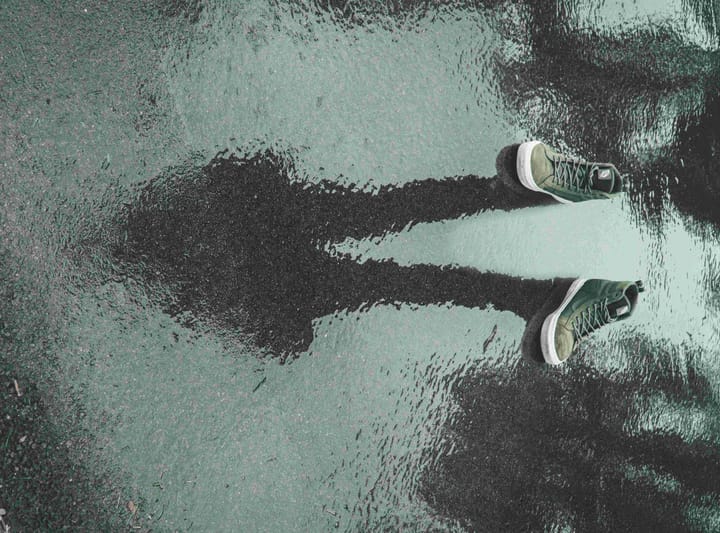Gravity Transformation
Her body, mind, and soul are drained. There’s no clear path to survival, and, more importantly, no hope. It’s a terrifying moment, and as the story unfolds, we realize she was already lost long before she left Earth.

Yeap – the movie tradition continues!
This time, not with a full movie analysis, but with a scene that easily connects to my recent articles about why we do what we do, how well we know ourselves, and how present we truly are instead of being stuck in the past.
And what better movie to explore this than Gravity, from the great director Alfonso Cuarón.
Spoiler alert for those who haven’t seen the movie yet! I’d recommend pausing here and coming back to this article after watching it and I promise I will not keep you long!
Now, the scene I’m referring to is when Dr. Ryan Stone, played by Sandra Bullock, finds herself floating in the vast emptiness of space, completely untethered—spinning, helpless, lost.
Her body, mind, and soul are drained. There’s no clear path to survival, and, more importantly, no hope. It’s a terrifying moment, and as the story unfolds, we realize she was already lost long before she left Earth. The memory of her daughter pulls her into a spiral of guilt and self-pity, keeping her trapped in the past.
But then, in what feels like a subconscious intervention—embodied by George Clooney’s character—she is reminded of her right to fight for life. Even when everything seems lost, she discovers that her daughter’s memory doesn’t have to weigh her down; instead, it can lift her up, reigniting her will to live with purpose.
A very powerful scene—lasting no more than three minutes—that, in essence, captures the core of the film.
When the World Falls Apart
In the beginning of the plot, we see Ryan 'at work,' going through the motions in a task-oriented mode, not truly experiencing the moments but merely ticking off tasks without engaging emotionally. The weight she carries isn’t the absence of gravity—but what we will find a bit later on, it’s grief.
She lost her daughter in an accident, and since then, her world has been reduced to a quiet, mechanical existence. She moves through life, but she isn’t in it. And then, in a cruel twist, space itself mirrors what she feels inside: detached, isolated, and adrift.
Everything around Ryan crumbles, literally. Debris hits, chaos erupts, and in an instant, her safe zone is gone. She is thrown into a life-or-death situation where every breath counts. And in that crisis, something shifts. Not all at once, not in an inspirational speech or a dramatic declaration—but in the small, quiet moments when she is forced to confront herself.
One of the most powerful scenes is when she is inside a space module, curled up like a fetus, floating, as if suspended in a womb. It’s a moment of vulnerability, almost like a reset. But soon after, despair creeps back in. She believes she won’t make it. She starts to let go.
In that moment, when she’s ready to give up, she speaks to the memory of her daughter.
Over there, something changes. She realizes that she doesn’t have to ‘move on’ from her daughter’s memory—she can carry it with her. Not as an anchor that keeps her stuck, but as a force that pushes her forward. Instead of seeing the past as something that chains her down, she allows it to be part of her strength.
She decides to fight. She understands there is still something worth fighting for. Herself. Her life. The simple but powerful act of standing back up.
Now, between you and me, the movie uses all the usual tricks, but the message is sound and clear. And while I can't fully grasp the emotional pain of her situation, I found myself forgiving her, no matter what path she chose—whether to continue or give up.
My 'only' Takeaway
Gravity is more than a survival story—it’s about the transformation that happens when we stop letting our past define us and start using it to fuel what’s ahead. A very powerful message, especially when we consider how often we look to the past, or allow it to define us, even in less painful or dramatic instances.
The real challenge, though, lies in facing our biggest opponent: ourselves. We often self-sabotage, drowning in past mistakes or regrets, using them as a crutch to stay stuck in misery. But true transformation comes when we break free from this cycle, choosing to see the world and our future through a more positive lens.
It’s like we’re drugging ourselves out of the negative, stepping into a space where we have the power to rewrite the story, not just of our past, but of what’s possible for us moving forward.




Comments ()